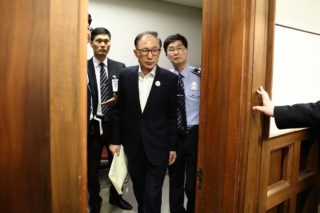
SIX MONTHS in, Russia and Ukraine are fighting a looking-glass war. Much of what has been held up as the truth in Moscow has turned out to be its mirror image.
Inside Russia, in early February, people close to the Kremlin did not believe that the troops mustering on Ukraine’s border would actually invade. When Vladimir Putin ordered tanks across the frontier, before dawn on February 24th, his officers carried dress uniforms for the victory parade they expected to hold within days. Their enemies were deemed to be Ukrainian Nazis, fighting for a country that had only ever existed as a figment of Soviet planners. During the fighting war crimes, including the shelling of a theatre filled with children in Mariupol and the murder of civilians in Bucha outside the capital, Kyiv, were portrayed as Ukrainian provocations staged to win Western sympathy.
Each of those claims reverses reality. American and British intelligence concluded that Mr Putin would invade months before he issued the order—and broke new ground by sharing their assessment with governments and the media. Those dress uniforms were destroyed, along with thousands of armoured vehicles, repulsed outside Kyiv by Ukraine’s resourceful troops. Under the Russian assault, Ukraine has only deepened its identity as a Western-leaning democracy. Whereas it is led by an inspirational Jewish leader, the country actually falling prey to fascism is Russia. Repression there has driven many of its most talented and enlightened citizens into exile. Russia committed war crimes after its blitzkrieg failed, perhaps to intimidate the Ukrainians, perhaps too because it fell back on old tactics of pounding the enemy into submission as it took territory in the south and east of Ukraine.
In Russia, the Kremlin continues to insist it is conducting a special military operation that is going according to plan. In reality, Mr Putin is bogged down in a war that has veered disastrously off course.
In the wider world the war has proved the vigour of the nato alliance. Leaders in America and Europe have come to see Mr Putin as a threat to the entire West. Cautiously at first, but with increasing audacity, they have rewarded Ukraine for its steadfastness with arms and cash. President Donald Trump had called nato “obsolete”. Under Joe Biden, America pledged $40bn to Ukraine and agreed to move troops to the alliance’s eastern front. Germany reached a turning-point, or Zeitenwende, in which it acknowledged the need for sweeping change to its security and energy. When Finland and Sweden saw a campaign designed to stop nato expanding, they overturned decades of diplomacy and applied to join. European countries that had been squeamish about refugees opened their borders to well over 6m Ukrainians. The West imposed comprehensive sanctions on powerful Russians attached to Mr Putin, on the central bank and the financial system, on oil and coal, and on the supply of high-tech goods.
But war has also highlighted the West’s waning influence. The sanctions have had mixed results, partly because much of the world has refused to join the West in condemning Russia. China has backed the Kremlin diplomatically, though it has been careful about sending weapons. India, like a lot of countries, has chosen not to impose sanctions but instead called for all sides to talk peace. Both have bought extra Russian oil, dulling the impact of Western sanctions. Some countries are sympathetic to Russia’s argument that America and the West arrogantly throw their weight around; some are angry at the suffering caused by expensive oil and food—though the prices of both have started to abate. (In the case of grain that is partly because Russia and Ukraine came to an agreement about shipments out of Odessa.) Few countries seem to agree with the Western argument that they have an interest in upholding the principle that a big power should not invade its neighbours.
The looking-glass war is the most intense in Europe since 1945. Its second six months are likely to be hard. Energy shortages will test the resolve of Ukraine’s European backers. In America Mr Trump’s shadow could once again fall over what has, so far, been an impressively bipartisan operation. Unity inside Ukraine could fray as the ravages of winter and the Russian assault add to people’s suffering. Inside Russia a growing sense of the futility and ruin of the Ukrainian campaign could lead Mr Putin to double down in hope of winning; or to recriminations from either the nationalist right or among factions that want a fresh start.
On the battlefield the Russian and Ukrainian armies are tired. Ukraine looks to have the upper hand, as it launches missile attacks deep into Russian-held territory and uses highly accurate Western-supplied weapons to hinder Russia from supplying its troops. But Ukraine is not yet able to force Russia back to anywhere near the line of contact on February 24th. Mr Putin has no obvious way to back down and has hinted darkly of resorting to nuclear weapons if his hand is forced. In this hall of mirrors, it is hard to see a path that leads to peace.
By The Economist




